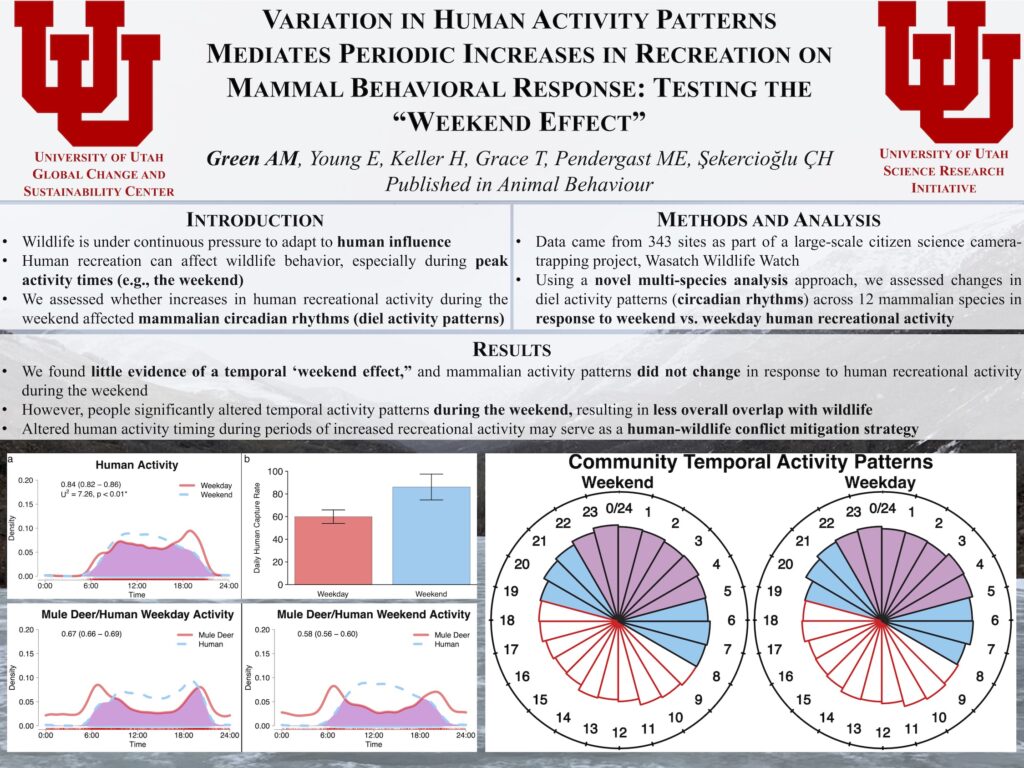Variation in human activity patterns mediates periodic increases in recreational activity on mammal behavioral response
Bio
I am a postdoctoral research fellow working with the Science Research Initiative. I currently run an undergraduate research lab focused around understanding the effects of human influence on terrestrial mammal distribution, behavior, and community composition along wild to urban interfaces. We leverage the power of large-scale community science collaboration, citizen science, and camera trapping to answer ecological questions at scales large enough to directly influence on-the-ground conservation planning, policy, and management.
Abstract
As the world's human population continues to concentrate within urban areas and these landscapes continue to expand worldwide, wildlife is under pressure to adapt to novel environmental disturbances. Along wild-to-urban gradients, and especially within less developed areas, human recreation can affect wildlife behavior. These effects may be most apparent during peaks in human recreational activity. In this study, we assessed whether periodic increases in human recreational activity elicited behavioral response across multiple mammal species. At the community-wide scale, we found that mammalian diel activity patterns did not change in response to periodic increases in human recreational activity during the weekend. However, people significantly altered temporal activity during the weekend, with more activity occurring in midday and less activity occurring in the evening, leading to consistent decreases in human-wildlife temporal overlap. This study highlights the possibility of altered human activity during periods of increased recreation as a human-wildlife conflict mitigation strategy.
Narrative
Wildlife is under continuous pressure to adapt to human influence and development. In particular, human recreational activity can affect wildlife behavior, especially during peak activity times (e.g., the weekend). In this work, we assessed whether increases in human recreational activity during the weekend affected mammalian circadian rhythms (aka their activity patterns) using data from a large-scale citizen science camera trapping project. We found little evidence of a temporal weekend effect, and mammalian activity patterns did not change in response to human recreational activity during the weekend. However, people significantly altered temporal activity patterns during the weekend, resulting in less overlap with wildlife. This altered activity timing during periods of increased recreational activity rates may serve as a human-wildlife conflict mitigation strategy in areas experiencing overall increases in recreational activity.

